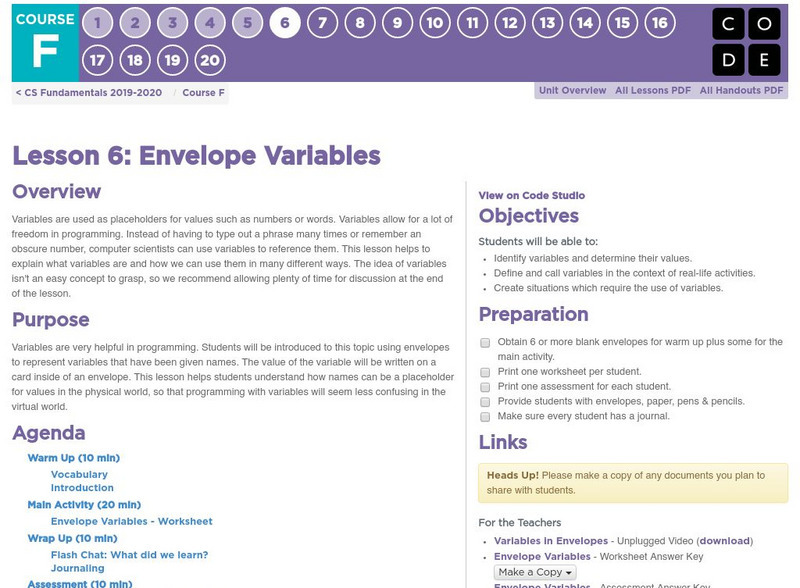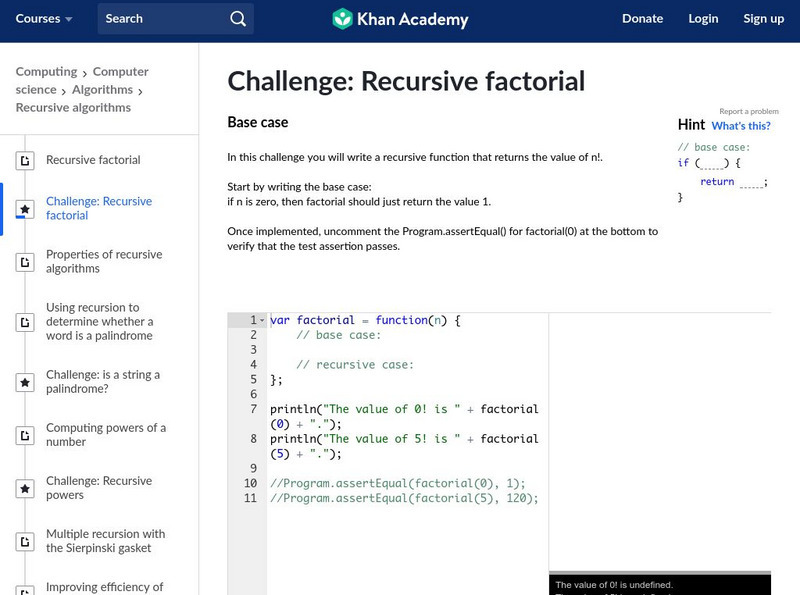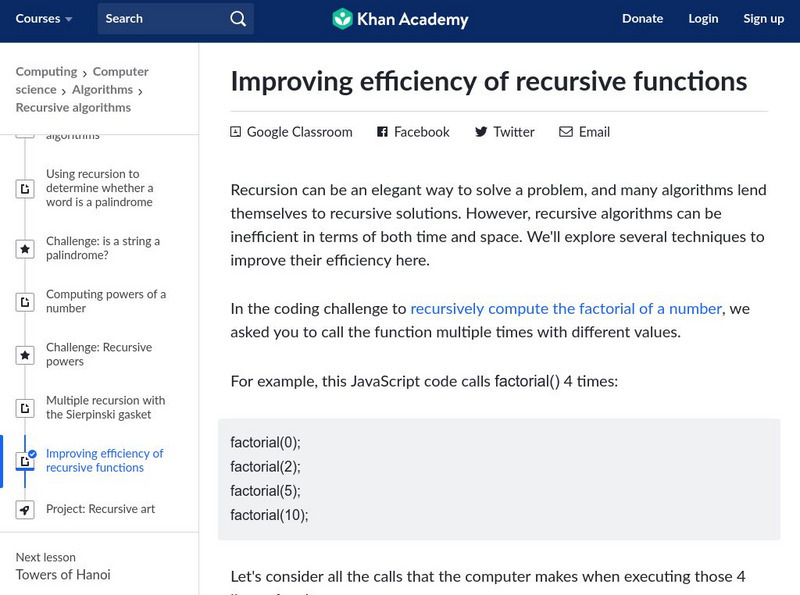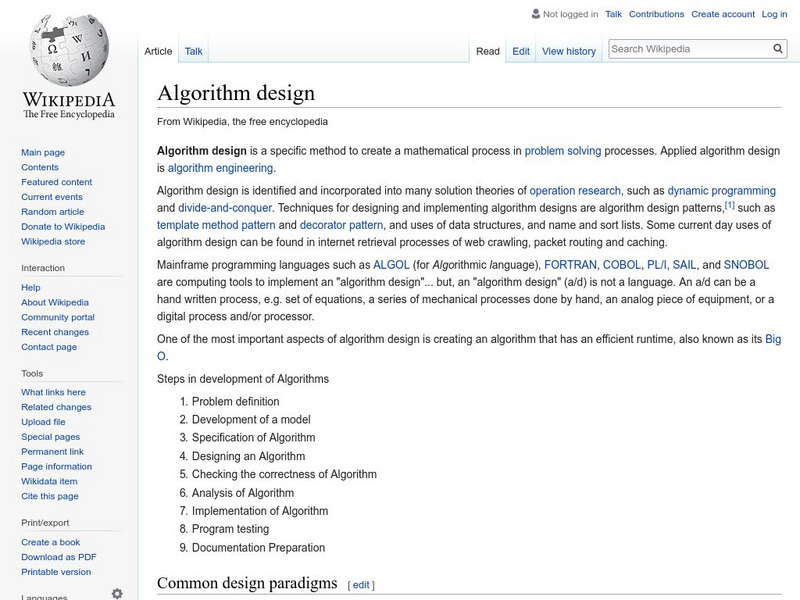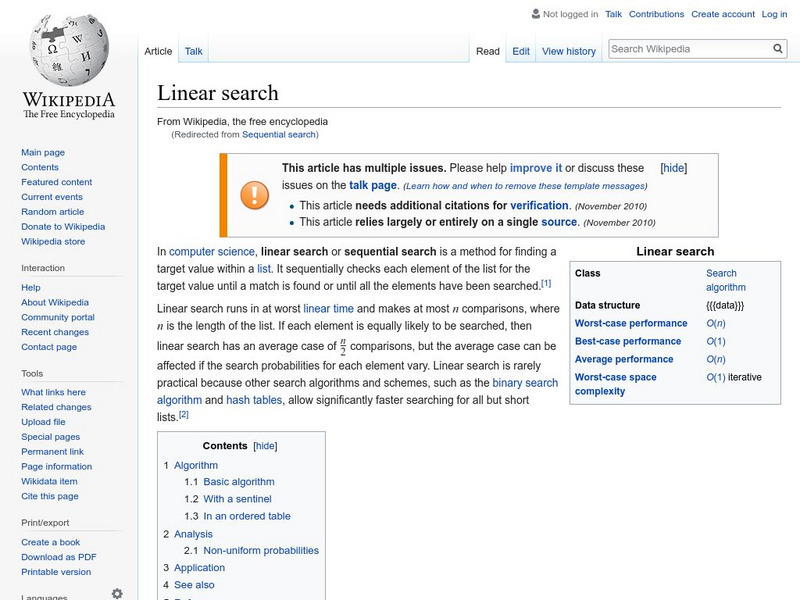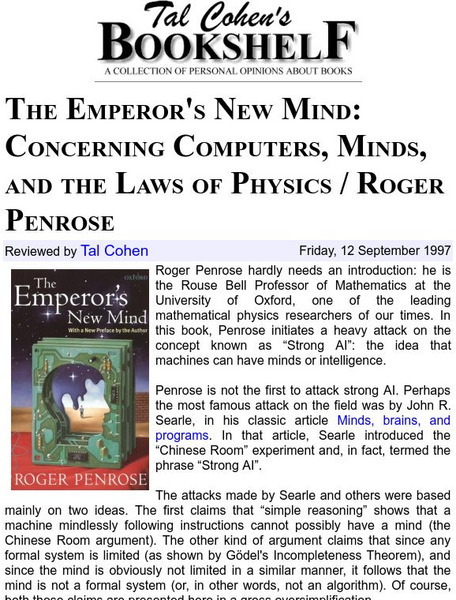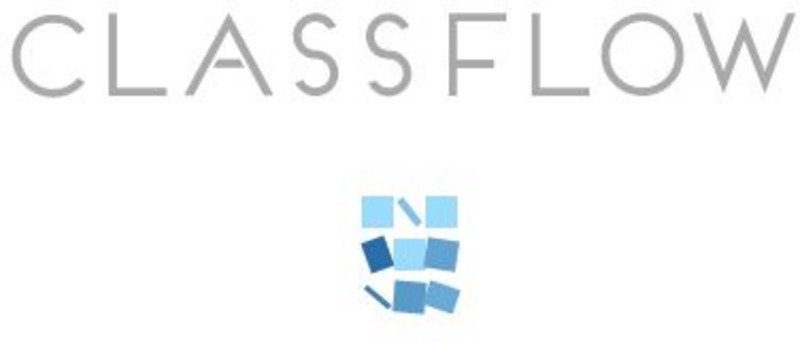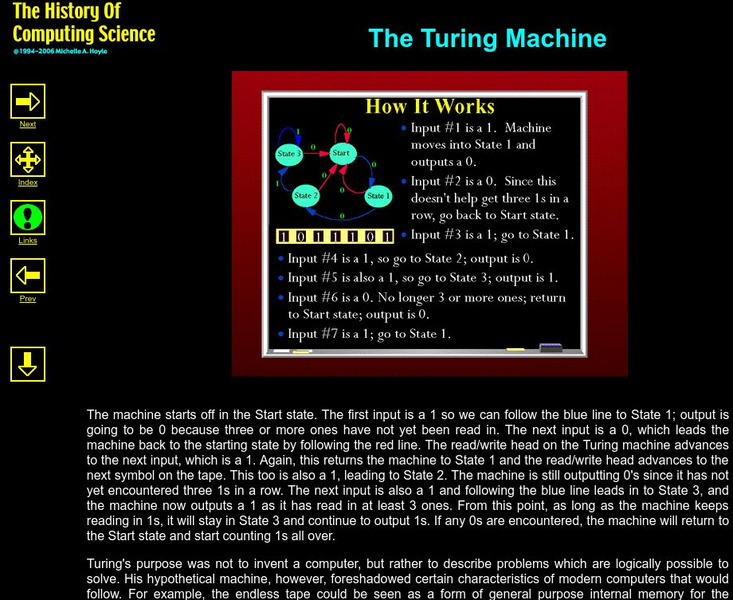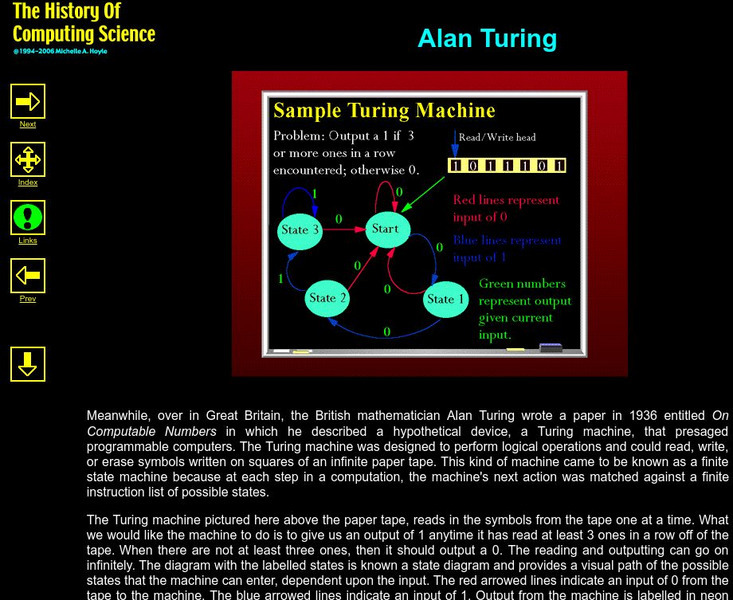Code.org
Code.org: Cs Fundamentals: Lesson 7: Variables With Artist
n this lesson, students will explore the creation of repetitive designs using variables in the Artist environment. Students will learn how variables can be used to make code easier to write and easier to read, even when the values don't...
Code.org
Code.org: Cs Fundamentals: Lesson 6: Envelope Variables
This lesson helps to explain what variables are and how we can use them in many different ways.
Khan Academy
Khan Academy: Binary Search
Learn how binary search is an efficient algorithm for finding an item from a sorted list of items.
Khan Academy
Khan Academy: Challenge: Recursive Powers
Challenge problems practicing recursive powers.
Khan Academy
Khan Academy: Challenge: Recursive Factorial
Practice solving recursive factorials with these problems.
Khan Academy
Khan Academy: Improving Efficiency of Recursive Functions
Learn how to improve the efficiency of recursive algorithms.
Better Lesson
Better Lesson: Adding and Subtracting With Decimals
Sixth graders fluently add and subtract money with decimals using the standard algorithm.
Khan Academy
Khan Academy: Get Started With Algorithms!
What is an algorithm? It's a sequence of steps that you follow to solve a problem. In everyday life, you might have an algorithm for hanging up your laundry, efficiently going through a shopping list, or finding an empty parking space in...
Khan Academy
Khan Academy: Big Omega Notation
Learn about Big Omega notation in computer programming.
Khan Academy
Khan Academy: Ap Csp Exam Pseudocode Reference
Since AP CS Principles is taught with a variety of programming languages, the AP CSP exam questions use a pseudocode that represents fundamental programming concepts. This overview will help with the basic understanding.
Khan Academy
Khan Academy: Move Three Disks in Towers of Hanoi
Move three disks in Towers of Hanoi, following the steps learned.
Louisiana Department of Education
Louisiana Doe: Louisiana Believes: Eureka Math Parent Guide: Multi Digit Multiplication and Division
A guide to support parents as they work with their students in multi-digit multiplication and division.
Louisiana Department of Education
Louisiana Doe: Louisiana Believes: Eureka Math Parent Guide Addition, Subtraction Within 1000 With Word Problems to 100
A guide to support parents as they work with their students in addition and subtraction within 1000 with word problems to 100.
Louisiana Department of Education
Louisiana Doe: Louisiana Believes: Eureka Math Parent Guide Addition, Subtraction Within 200 With Word Problems to 100
A guide to support parents as they work with their students in addition and subtraction within 200 with word problems to 100.
NASA
Nasa: Al Khorezmi and the Dawn of Algebra
At this site from NASA you can read about Al-Khawarizmi (also known as al-Kwarismi or al-Khorezmi) and his significant role in the early study of algebra.
Wikimedia
Wikipedia: Algorithm Design
A Wikipedia description of the process of designing algorithms.
Wikimedia
Wikipedia: Sequential Search
Provides a brief definition of a sequential search in the context of computer science. A short example is also provided.
Other
Tal Cohen's Bookshelf: The Emperor's New Mind
This site from the Tal Cohen's Bookshelf provides a detailed review of the book, The Emperor's New Mind. An interesting look at the machines of our world and how they may take on more human tasks.
John Wiley & Sons
Wiley Higher Education: Computing Concepts Algorithms
This page provides online class notes and lab exercises to gain experience with different types of algorithms including bubble sort, merge sort, linear and binary search .
ClassFlow
Class Flow: Metric System
[Free Registration/Login Required] This is a supplemental metric system flipchart I used with my students to reinforce previous classroom discussions. It contains an algorithm we developed in class, as well as, several practice problems...
History of Computing Science
History of Computing Science: The Turing Machine
A Turing Machine is not an actual machine, but rather a symbolic system that can be used to represent any algorithm used to solve a problem. This lecture series gives a very brief description of the Turing Machine.
History of Computing Science
History of Computing Science: Alan Turing
Alan Turing is sometimes referred to as the father of modern computer science. This lecture series provides a brief description of his well-known contribution, the Turing Machine.



